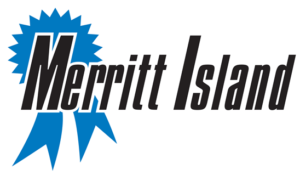Identifying and Rectifying Indoor Air Pollutants in Melbourne, FL
You want to keep yourself and your family healthy in Melbourne, FL. But did you know that indoor air can be two to five times more polluted than outdoor air? It pays to maintain good indoor air quality. Here are some of the more well-known indoor air pollutants that you can identify and suggestions for eliminating them:
Dust Mites
Dust mites thrive in humid regions like ours and will inhabit your home in high concentrations if its humidity level exceeds 50 percent. These tiny pests can trigger asthma and allergies and are especially linked with allergic rhinitis, a reaction affecting the nose.
You can eliminate dust mites and improve IAQ by several means. For example, you could use a dehumidifier and clean your carpets with a vacuum cleaner equipped with a HEPA (High Efficiency Particulate Air) filter.
Pet Allergens
Your pets, whether they’re long-haired, short-haired or hairless, can spread allergens through your home that stick to the furniture. These allergens can stay around longer than dust mites and make life miserable for those with allergies.
You should keep pets away from allergy sufferers. Also, replace your air filter more frequently. To give some idea of the frequency: Pleated filters can last up to 90 days but may need replacing after 60 days if you have pets.
Microbial Growth
Dampness in the home can facilitate the growth of microbial and other harmful air particulates. As for how the home becomes damp, any number of factors could be involved. Water damage is one. For instance, the condensate drain line of a poorly maintained AC system will get clogged and not do its job of removing condensation.
AC tuneups can prevent the growth of microbial and other pathogens. You may also need to have the ductwork checked for leaks as water may seep through them and attract biological growth. Exposure to an abundant amount of microbial growth can lead to:
- Worsening asthma.
- Itchy, red eyes.
- Shortness of breath.
- Coughing and sore throat.
Viruses
Viruses transmit very easily in homes with damp and stagnant air. Therefore, it’s important to keep your home well-ventilated. Air purifiers can kill cold and flu viruses. If your purifier comes with a UV antimicrobial lamp, it can kill bacteria like the legionella bacterium.
Asbestos
Asbestos is a mineral long used as a building material because of its high heat resistance. It’s toxic, though, and linked with deadly cancers like mesothelioma. The United States has not outright banned its use, and you can still find it in older homes, especially in:
- Insulation.
- Tiles and shingles.
- Drywall.
Fortunately, asbestos in your home doesn’t pose an immediate health hazard unless the fibers go airborne. That can only happen if the materials containing them become damaged or disturbed. You could hire an indoor air quality expert for an inspection.
Volatile Organic Compounds
Air pollutants can be gaseous, too, as in the case of volatile organic compounds. These are toxic chemicals in many households products like:
- Air fresheners.
- Disinfectants.
- Deodorants.
- Opened cans of paint.
- Scented cleaning products.
The immediate effects of VOC exposure can range from dizziness and headaches to shortness of breath and allergic skin reactions. The solution is to reduce exposure through the use of green cleaning products and benzene-free paint. You can also open the windows and run a ceiling fan when cleaning or cooking.
NATE-Certified Service Technicians to Serve You
Good IAQ is important for your health. Merritt Island Air & Heat has been serving the people of Melbourne and vicinity since 1977. To see how our AC services can help improve your indoor air quality, call today to schedule a consultation. We look forward to helping you breathe easier, sleep better and live healthier inside your home.
Image provided by iStock
